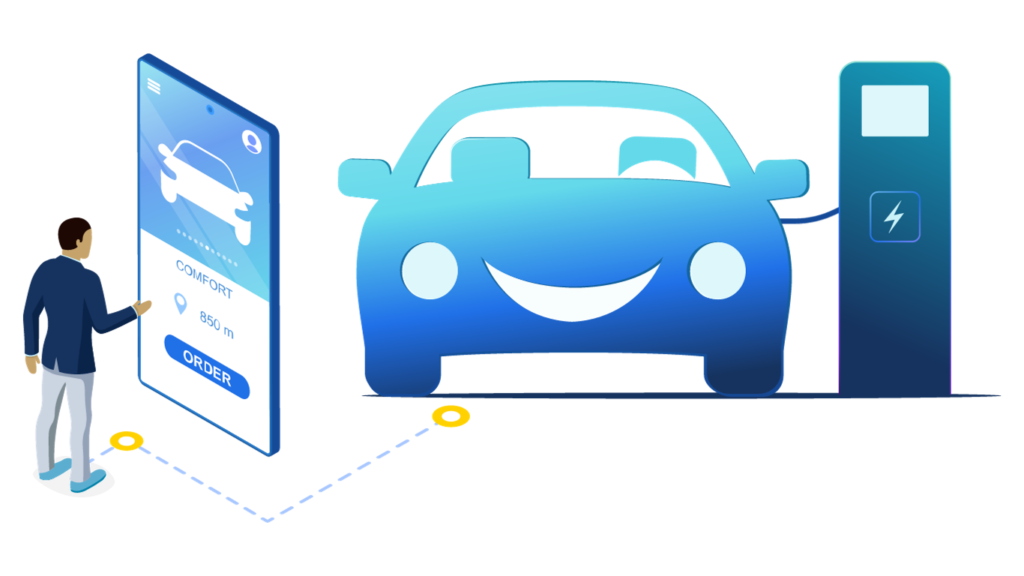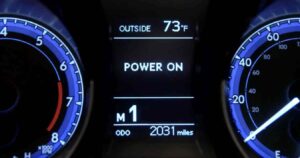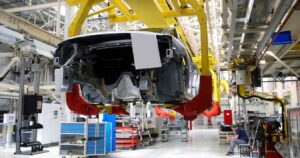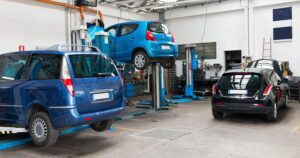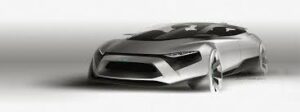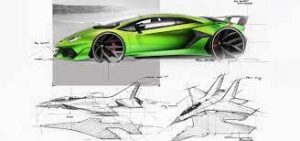The Nissan Leaf has gained immense popularity as one of the leading electric vehicles in the market. Its innovative technology and eco-friendly features have made it a top choice for environmentally conscious drivers.
In this article, we will delve into the pros and cons of the Nissan Leaf to help you make an informed decision if you’re considering purchasing this electric vehicle.
Table of Contents
TogglePros of the Nissan Leaf
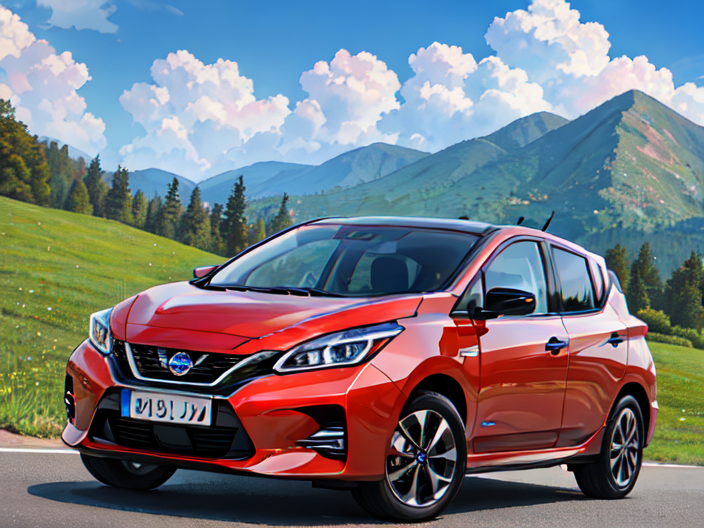
Zero Emissions
One of the biggest advantages of the Nissan Leaf is its zero-emission nature. Unlike traditional gasoline-powered vehicles, the Leaf runs solely on electricity, which significantly reduces your carbon footprint and helps combat air pollution. By opting for the Leaf, you contribute to a cleaner and healthier environment.
Fuel Cost Savings
With the rising prices of gasoline, the Nissan Leaf offers a cost-effective solution. Electricity is generally cheaper than gasoline, and charging the Leaf at home or at public charging stations can save you a substantial amount of money in fuel costs over time. Not only do you save on day-to-day expenses, but you also enjoy long-term savings on fuel expenditures.
Smooth and Quiet Ride
The Leaf’s electric motor provides a smooth and quiet driving experience. The absence of an internal combustion engine eliminates the vibrations and noise associated with traditional cars, making your journeys peaceful and serene. Enjoy a tranquil ride without the constant rumble of an engine.
Instant Torque
Electric motors deliver instant torque, providing quick acceleration and responsive performance. The Nissan Leaf excels in city driving, effortlessly maneuvering through traffic and delivering an exhilarating driving experience. Experience the thrill of immediate power at your fingertips.
Low Maintenance
Electric vehicles have fewer moving parts compared to gasoline-powered vehicles. This translates into reduced maintenance requirements and lower costs in the long run.
The Leaf’s regenerative braking system also helps prolong the life of the brake pads. Spend less time and money on maintenance and more time enjoying the open road.
Government Incentives
Many governments around the world offer incentives and tax credits for purchasing electric vehicles, including the Nissan Leaf.
These incentives can further offset the initial cost and make owning an electric car even more affordable.
Take advantage of the financial benefits provided by your local government and enjoy a more accessible path to eco-friendly driving.
Advanced Technology
The Nissan Leaf comes equipped with cutting-edge technology features. It includes a user-friendly infotainment system, advanced safety features, and smartphone integration, providing a modern and convenient driving experience.
Stay connected, entertained, and safe with the array of technological advancements offered by the Leaf.
Environmental Impact
By choosing the Nissan Leaf, you actively contribute to reducing greenhouse gas emissions and combating climate change. As our society increasingly recognizes the importance of sustainability, driving an electric vehicle like the Leaf makes a positive statement about your commitment to a greener future.
Cons of the Nissan Leaf
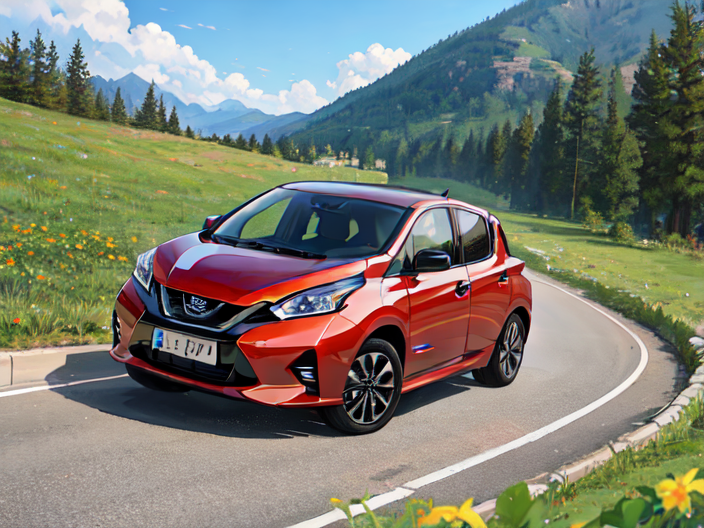
Limited Driving Range
One of the main concerns with electric vehicles, including the Nissan Leaf, is their limited driving range compared to traditional cars.
Although newer models offer increased range, it is essential to plan your longer journeys carefully and consider available charging infrastructure.
While the Leaf’s range may be sufficient for daily commuting and shorter trips, it may require more planning for extended travel.
Charging Time
Charging an electric vehicle takes longer than refueling a gasoline car. While home charging is convenient overnight, public charging stations may require more time, especially for a full charge.
However, rapid charging options are becoming more accessible, reducing charging times significantly. It’s crucial to consider your charging needs and plan accordingly to ensure a seamless and efficient charging experience.
Dependence on Charging Infrastructure
Owning an electric vehicle requires access to charging infrastructure. While the network of charging stations is growing, it may still be less extensive compared to gasoline stations.
It’s important to ensure there are sufficient charging options in your area or along your regular routes. Familiarize yourself with the available charging infrastructure to mitigate any inconvenience or range anxiety.
Upfront Cost
Electric vehicles, including the Nissan Leaf, can have a higher upfront cost compared to their gasoline counterparts. However, when factoring in fuel savings and potential incentives, the total cost of ownership over the vehicle’s lifetime may be more competitive. Consider the long-term financial benefits and the positive environmental impact when evaluating the upfront cost of the Leaf.
Battery Degradation
Over time, the battery of an electric vehicle will gradually lose its capacity. While Nissan offers a warranty for the Leaf’s battery, it’s essential to consider the potential decrease in range and performance as the vehicle ages.
However, technological advancements in battery technology are continually improving, and the rate of battery degradation is reducing with each new generation of electric vehicles.
Availability of Models
Depending on your location, the availability of Nissan Leaf models and specific trims may vary. It’s important to check with local dealerships or online resources to ensure the desired model and configuration are accessible in your area. Research the availability of the Leaf in your region to ensure a smooth purchasing experience.
Conclusion
The Nissan Leaf has established itself as a leading electric vehicle with numerous benefits. From zero emissions and fuel cost savings to advanced technology and a smooth driving experience, the Leaf offers compelling advantages for eco-conscious drivers.
However, it’s important to consider the potential limitations, such as the driving range, charging infrastructure, and upfront cost. By weighing the pros and cons, you can determine if the Nissan Leaf is the right choice for your lifestyle and driving needs.
Embrace the future of sustainable transportation with the Nissan Leaf and contribute to a greener tomorrow.
In conclusion, the Nissan Leaf presents a compelling case as an electric vehicle that combines environmental consciousness, cost savings, and advanced technology.
With its growing range and charging infrastructure, the Leaf offers a practical and efficient solution for everyday commuting.
Take the plunge into the world of electric vehicles and experience the benefits of driving a Nissan Leaf. Together, let’s drive towards a cleaner and more sustainable future.

